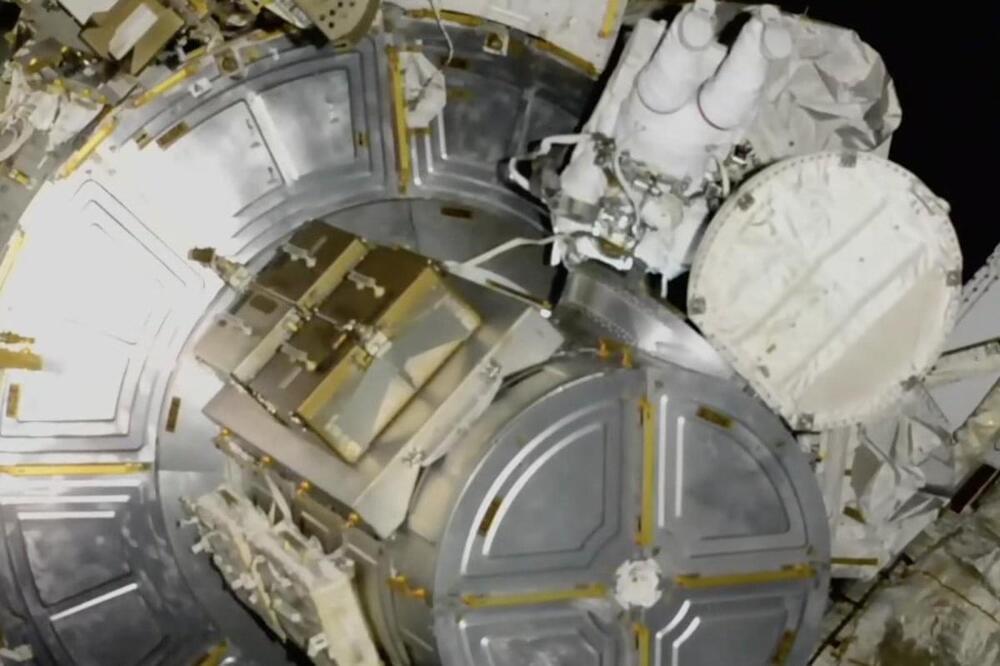Jan 20, 2023
US Marines Defeat DARPA Robot
Posted by Liliana Alfair in categories: military, robotics/AI
DARPA has trained one of its robots to identify humans. There’s just one little problem: The robot is cartoonishly easy to confuse.
DARPA has trained one of its robots to identify humans. There’s just one little problem: The robot is cartoonishly easy to confuse.
Summary: Researchers have developed a new family of nano-scale capsules capable of carrying CRISPR gene editing tools to different organs of the body before harmlessly dissolving. The capsules were able to enter the brains of mice and successfully edit a gene associated with Alzheimer’s disease.
Source: University of Wisconsin-Madison.
Gene therapies have the potential to treat neurological disorders like Alzheimer’s and Parkinson’s diseases, but they face a common barrier — the blood-brain barrier.
Dual-action cell therapy engineered to eliminate established tumors and train the immune system to eradicate primary tumor and prevent cancer’s recurrence. Scientists are harnessing a new way to turn cancer cells into potent, anti-cancer agents. In the latest work from the lab of Khalid Shah, MS, PhD, at Brigham and Women’s Hospital, a founding member of the Mass General Brigham healthcare system, investigators have developed a new cell therapy approach to eliminate established tumors and induce long-term immunity, training the immune system so that it can prevent cancer from recurring. The team tested their dual-action, cancer-killing vaccine in an advanced mouse model of the deadly brain cancer glioblastoma, with promising results. Findings are published in Science Translational Medicine.
(Great Silence): Where is Everybody? Where Are the Aliens?
Posted on Big Think, for direct link go to:
Posted on Big Think.
Continue reading “A New Hope for Solving the Fermi Paradox?” »

Does Tesla know how to make cars for profit? You bet.
Sandy and Cory discuss Tesla’s price cuts.
Continue reading “Sandy Rant: Tesla Margins and why Sandy was Right!” »

Jan. 20 (UPI) — Two astronauts embarked on the first spacewalk of 2023 on Friday as they work toward upgrading the International Space Station’s power generation system.
NASA astronaut Nicole Mann teamed up with Koichi Wakata of the Japan Aerospace Exploration Agency for the morning spacewalk, expected to last about 6 1/2 hours. They will install a modification kit at the far end of the ISS, allowing for the future installation of the roll-out solar array.
Continue reading “Watch live: Astronauts conduct first ISS spacewalk of 2023” »
JERUSALEM, Jan 19 (Reuters) — Israel’s chief rabbi has given a kosher stamp of approval this week to a company looking to sell steak grown from cow cells — while effectively taking the animal itself out of the equation.
Cultivated meat, grown from animal cells in a lab or manufacturing plant, has been getting a lot of attention as a way to sidestep the environmental toll of the meat industry and address concerns over animal welfare.
This method, however, has raised questions over religious restrictions, like kashrut in Judaism or Islam’s halal.
For the first time since it was proposed more than 80 years ago, scientists from Nanyang Technological University, Singapore (NTU Singapore) have demonstrated the phenomenon of “quantum recoil,” which describes how the particle nature of light has a major impact on electrons moving through materials. The research is published online today (January 19) in the journal Nature Photonics.
Making quantum recoil a practical reality should eventually allow businesses to more accurately produce X-rays of specific energy levels, leading to superior accuracy in healthcare and manufacturing applications such as medical imaging and flaw detection in semiconductor chips.
Quantum recoil was theorized by Russian physicist and Nobel laureate Vitaly Ginzburg in 1940 to accurately account for radiation emitted when charged particles like electrons move through a medium, such as water, or materials with repeated patterns on the surface, including those on butterfly wings and graphite.
OpenAI has sparked an explosion of funding and software development around artificial-intelligence software that understands human language. While the technology still makes plenty of mistakes, new applications are coming out in droves, from tools that help marketers write copy to audio chatbots that may be able to negotiate discounts for customers of a companies like Comcast.
Last week, subscribers of The Information joined a conference call about the year ahead in AI with Noam Shazeer, CEO of Character, which is developing chatbots similar to OpenAI’s ChatGPT and who co-authored a seminal research paper on that subject while working at Google; and Clement Delangue, CEO of Hugging Face, which runs a Github-like service for software engineers to store their machine learning models.
A ‘longevity protein’ discovered in the DNA of centenarians promises to rejuvenate the heart by at least 10 years. Hope comes from a preclinical study coordinated by Annibale Puca of the MultiMedica group in Milan and Paolo Madeddu of the University of Bristol in the United Kingdom, funded by the British Heart Foundation and the Italian Ministry of Health and published in ‘Cardiovascular Research’, a journal of the European Society of Cardiology (ESC).
